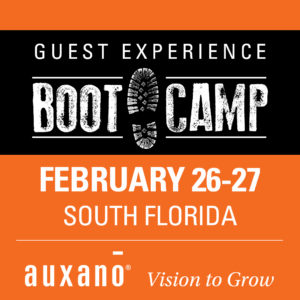
Why “How It Feels” is as Critical as “How It Works”
It’s fairly easy for volunteers on your team to state what they do. It’s also pretty easy for most volunteers to talk about how they do what they do. However, few volunteers can actually articulate WHY they do what they do.
The reason? Stating WHY goes to values, and values are often talked about but more often misunderstood.
A church without values is like a river without banks – just a large puddle.
Values are the shared convictions that guide the actions and reveal the strength of the church. They are the values that represent the conscious and collective soul of your church because they express your most deeply held ideals. They define your ministry’s ethos.
Values are filters for decision-making and springboards for daily action. They are the constant reminder of what is most important to your church.
As with any organization, your church has a set of shared values underneath the surface of everyday activity. The problem is that they stay weak because they are unidentified and unharnessed in guiding the future.
The role of the leader is to identify the most important values and pull them above the waterline of people’s perception. Once they are in clear view, the leader can nurture their development, enabling the church to do more of what it does best.
What is true of your church as a whole is also true of individual ministries in your church – such as your hospitality ministry.
THE QUICK SUMMARY
The key to growth as a church, youth ministry, or a business is getting first-time guests to come back. And as any good manager of a hotel, a store, a restaurant, or an attraction knows, the key to getting guests to come back is not actually the rooms or the product or the food itself; it’s how guests feel when they’re there. It’s about hospitality. No matter how much effort and time we spend on excellence–stirring worship time, inspiring sermons, a good coffee blend in the foyer–what our guests really want when they come to our churches is to feel welcome, comfortable, and understood.
Written by a church consultant and a hospitality expert, The Come Back Effect shows church, ministry, and even business leaders the secret to helping a first-time guest return again and again. Through an engaging, story-driven approach, they explain how service and hospitality are two different things, show how Jesus practiced hospitality, and invite leaders to develop and implement changes that lead to repeat visits and, eventually, to sustained growth.
A SIMPLE SOLUTION
No matter how over-the-top your service, if it doesn’t connect with the emotions of your guest, it isn’t hospitality. Hospitality is about the feeling.
Life is so hurried and hectic. What if the church could be the place where a guest feels the least hurried? Where the relational moments could provide a safe environment – safe to process through difficult moments in our life?
Decide proactively what you want your guests to feel, then look for ways to create environments that will help them experience that.
When the emotion is there, it doesn’t feel like someone’s doing their job. It’s like they’re your friend. It feels like they’re rooting for you and that doing their job is a way to support you – not just a means to perform a task.
Hospitality is about caring for the emotions of the guest just as much as it is about serving them, if not even more. That means knowing when it’s time to go above and beyond the call of duty or when it’s time to walk away. Hospitality is about merging the function – the tasks – and the feeling.
Every time a guest experiences us, we should honor them enough to deliver the same level of hospitality in every experience. But that same level of hospitality might mean responding differently each time, because the experience is about the guest. It’s not about making ourselves feel good about the service we provided. It’s making the guest feel good about the hospitality we showed.
Many ministries have been “doing” this serving thing for so long that all they worry about is “doing.” We need to reimagine what it means to be the guest and what it means to add feeling back into it. This means prioritizing the feelings of the guest over the tasks we perform for them.
The question to ask when faced with this information is obvious: Do we simply let the tasks go in exchange for the feeling? No. This idea of merging function and feeling is about a perspective shift more than anything. It’s not strictly a behavioral change, though this will affect your behavior. It’s about focusing on the feeling of the task – not simply the task itself.
Jason Young and Jonathan Malm, The Come Back Effect
A NEXT STEP
Serving is task oriented; hospitality is feeling oriented. Simply performing tasks is not enough to compel a guest to come back. Hospitality should change the way we perform our tasks. Tasks are important, but it’s the intangible feelings we transmit that turn them into moments of hospitality.
At your next team meeting, expose your team to both the good and negative feelings so they can know what good feelings to deliver in order to replace the negative emotion. Using the list developed by the authors below, highlight the positive feelings that stick out to you. What are some additional feelings your team would add?
You want your guests to feel:
Confident Pleased Included
Safe Comfortable Refreshed
Satisfied Excited Challenged
Accepted Interested Secure
Hopeful Valued In control
Acknowledged Relaxed Delighted
Empowered Welcomed
Educated Familiar
Now, underline the negative feelings you’ve experienced in guest services environments. What are some additional feelings you team would add?
You don’t want your guests to feel:
Confused Doubtful Frustrated
Unsafe Angry Uninitiated
Skeptical Hurt Overwhelmed
Cynical Distrustful Uncomfortable
Suspicious Processed Out of control
Ignored Rushed Helpless
Annoyed Uneasy
By knowing and understanding the negative feelings that can happen, your team what’s possible by replacing those negative feelings with positive ones.
Excerpt taken from SUMS Remix 99-3, released August 2018.
Interested in bringing your team (up to 5 people) to Auxano’s Guest Experience Boot Camp coming to West Palm Beach, FL on February 26-27? Find out more here.

This is part of a weekly series posting excerpts from one of the most innovative content sources in the church world: SUMS Remix book excerpts for church leaders.
Each issue SUMS Remix takes a practical problem in the church and looks at it with three solutions; each solution is taken from a different book. Additionally, a practical action step is included with each solution.
As a church leader you get to scan relevant books based on practical tools and solutions to real ministry problems, not just by the cover of the book. Each post will have the edition number which shows the year and what number it is in the overall sequence. (SUMS Remix provides 26 issues per year, delivered every other week to your inbox).
> > Subscribe to SUMS Remix <<

Tags: Church Guest Experience, Guest Experience, Jason Young, SUMS Remix, The Comeback Effect, Values





















